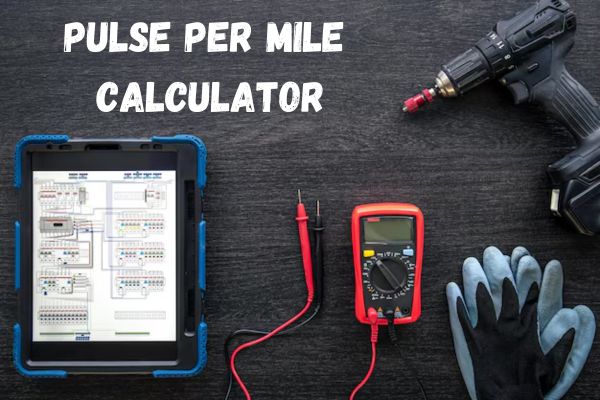Pulse Per Mile Calculator
A Pulse Per Mile Calculator is a crucial tool in automotive engineering, particularly in determining vehicle speed and gear ratios. This calculator helps car enthusiasts, mechanics, and engineers understand how many pulses a vehicle’s speed sensor generates per mile, which directly influences speedometer accuracy and electronic control unit (ECU) calculations.

Pulse Per Mile Calculator
What is a Pulse Per Mile Calculator?
A Pulse Per Mile (PPM) Calculator calculates the number of electrical pulses generated by a vehicle’s speed sensor per mile traveled. These pulses are used by the speedometer and ECU to determine speed, adjust fuel injection, and optimize transmission performance. Understanding PPM is essential for modifying vehicles, ensuring accurate speed readings, and troubleshooting sensor-related issues.
How Does a Pulse Per Mile Calculator Work?
The Pulse Per Mile Calculator functions by utilizing vehicle-specific data, including tire diameter, gear ratio, and sensor type. The calculation follows this basic formula:
PPM = (Axle Ratio × Tire Revolutions per Mile × Sensor Pulses per Revolution)
Where:
- Axle Ratio is the differential gear ratio.
- Tire Revolutions per Mile depends on the tire size.
- Sensor Pulses per Revolution is based on the speed sensor specifications.
Benefits of Using a Pulse Per Mile Calculator
1. Speedometer Accuracy
When changing tire sizes or modifying gear ratios, the speedometer reading can become inaccurate. A PPM Calculator helps recalibrate the speedometer to reflect actual speed.
2. ECU and Transmission Tuning
Modern vehicles rely on accurate speed readings for optimal transmission shifting and fuel efficiency. Adjusting the PPM ensures proper ECU functionality.
3. Performance Optimization
Car enthusiasts and tuners use PPM calculations to fine-tune vehicle performance, ensuring accurate speed sensing and efficient power delivery.
4. Troubleshooting Sensor Issues
If a vehicle’s speed sensor malfunctions, calculating PPM can help diagnose discrepancies and determine whether sensor calibration is necessary.
How to Calculate and Adjust PPM?
To obtain an accurate Pulse Per Mile value:
- Identify Vehicle Specifications – Gather data on axle ratio, tire size, and sensor specifications.
- Use the Formula – Apply the PPM formula to compute the correct pulse count.
- Adjust the Speedometer or ECU – Modify the settings accordingly to ensure correct readings.
Conclusion
A Pulse Per Mile Calculator is essential for vehicle customization, speedometer correction, and ECU tuning. By understanding PPM values, automotive enthusiasts and mechanics can enhance vehicle accuracy, performance, and safety. Whether adjusting for larger tires or troubleshooting speed sensors, this tool ensures precise calibration for a smooth driving experience.ential while safeguarding their heart health.